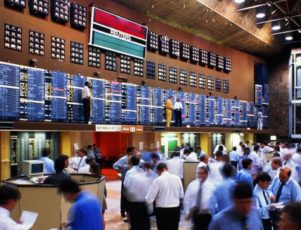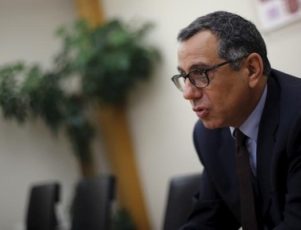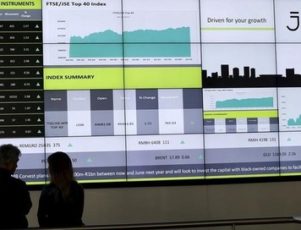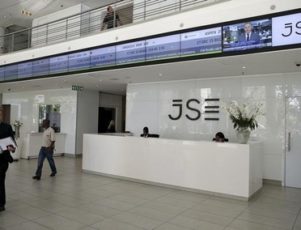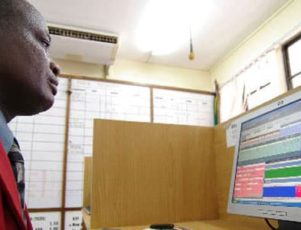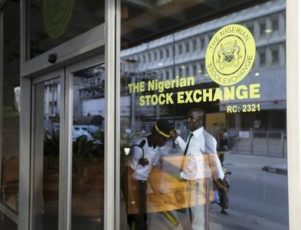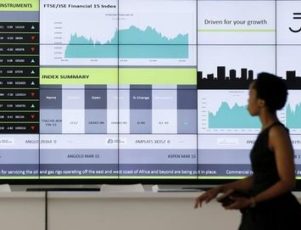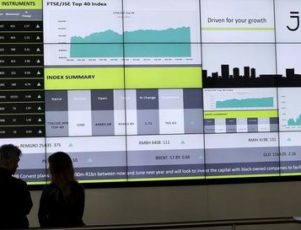South African company Zar X has been given license to open a new stock exchange market, the first new market in more than 100 years.
For many in Africa, the world of stock exchange and brokerage is an elite realm for the wealthy and well educated. The outside fees alone, paid to brokers and investment firms, are enough to deter a huge proportion of the world’s population, not to mention the financial literacy required to make informed trades. In developing countries, where stock exchanges may be inaccessible for all but a small portion of the population, this is particularly true. Many stock exchanges are centuries old. South African company Zar X is changing the scene: as of September 1st, they are expected to launch trading in a low-barrier, low-risk market for the first time in the country’s history. This exciting development is expected to open up the world of stocks to a much wider demographic, enabling less-wealthy South Africans to participate in the global economic market.
Taking Stock
In March of this year, Zar X was granted a stock exchange license by the Financial Service Board, the first company to have received one in more than a century. Founder and CEO Etienne Nel says that Zar X’s “initial focus will be on low-hanging fruit – the companies that the Johannesburg Stock Exchange (JSE) cannot list, like the traditional over-the-counter market and the related shares around this market.” For the last 120 odd years, the Johannesburg Stock Exchange (JSE), South Africa’s first and previously only stock exchange, has offered T+5 and T+3 settlements, or trades that take five or three days, respectively, to clear into an investor’s account. Zar X will be the only exchange to offer T+0 settlements, or same day settlements.
The more complex trades (T+5 and T+3) will still be offered on the JSE, but for restricted trades and mid-size company listings (companies worth between US $36million and US $360million), Zar X will be the go-to listing. These companies have different rules for listing shares than larger companies, and are therefore more accessible for individuals without investment experience. Zar X “will offer simple, fast and affordable platforms for corporate listings and share trading, with strong focus on the market in restricted equity offerings, primarily black empowerment securities.”
An Exchange for the Everyman
According to their website, “ZAR X is a platform that lets everyday South Africans transact shares quickly, cheaply and conveniently, even if they have never formally invested money or opened a bank account before.” For the millions of South Africans without bank accounts, this is a potentially life-changing opportunity. Zar X will offer businesses a flexible, transparent and affordable way to list their restricted or limited share offerings through its three sections: a main board for company listings, an “over-the-counter” stock trading business, and an investment products market. Zar X differs from the JSE for a variety of reasons, including that it will allow shareholders to invest without custody fees. Custody fees are one of the barriers to people from lower-income households to enter the stock market: these are fees charged by the individual investor for handling a clients’ money. Since Zar X allows investors to work directly in the market, there will be no broker to collect these fees. This, along with the innovative trading and company listing regulations, is a game-changing move by Zar X. It has the potential to make trading accessible for millions of people who were previously prevented from participating.
Trading for Empowerment
Zar X is expected to have a very positive impact upon South Africans for a variety of reasons. This new opening in the market will allow a greater diversity of tradeable shares, thus increasing competition between companies that were previously without representation. Aside from the numerous economic impacts, Zar X stands to have quite a social impact as well. Nel was inspired to create Zar X out of a desire to open up the stock market to a wider group of people. This project will not only increase financial literacy for South Africans with little to no financial experience, but may also be an important empowerment project for South Africa’s working class. Financial autonomy is a large component of self-confidence, and by increasing the scope of representation within the global market, South Africans will be able to view themselves as financially capable global citizens.

